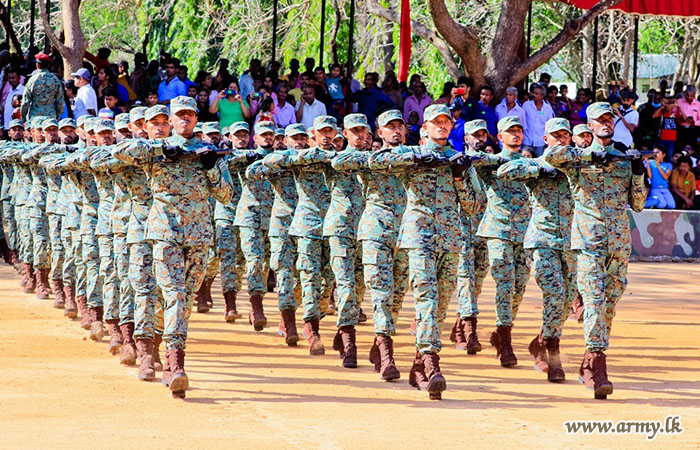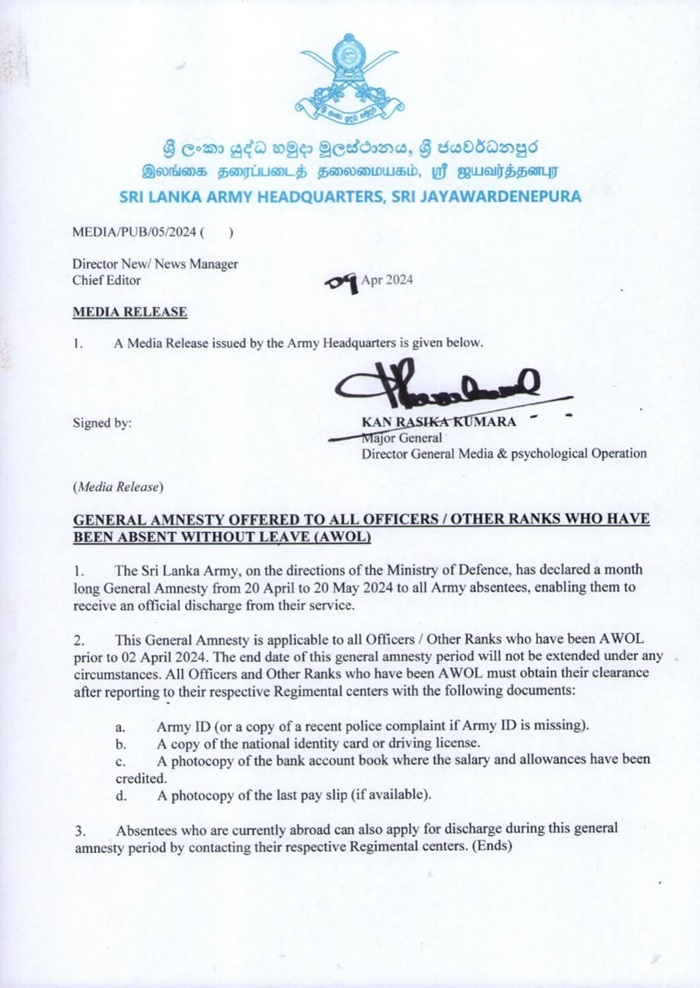
The Sri Lankan army has announced a general amnesty for one month for all deserters in an attempt to formally discharge the officers from duty and recover any weaponry provided, after reports that Sri Lankan soldiers had fled the island to serve for Russia in its war in Ukraine.
Starting on April 20, the amnesty will allow the deserters to formalise their departure from official service. This amnesty has been authorised by the Ministry of Defence, highlighting the urgent need for the security forces to address military personnel absenteeism.
According to the media release, the general amnesty applies to all officers and other ranks who have been absent without leave (AWOL) before 2 April 2024. The deadline is set for May 20.

The amnesty comes in the wake of the military outfit being plagued by information relating to mercenaries from the army who have joined the Russian and Ukrainian forces on the battlefield. Sri Lankan soldiers have reported to have died fighting for and against the Russian army on the front lines in Ukraine, as “hundreds” of former soldiers have turned mercenaries amid an economic crisis on the island.
An Al Jazeera report this week detailed the death of the most recent recruit to the Russian army from Sri Lanka. The soldier whose real name has been withheld to protect the identity of his family, enlisted to serve in Russia’s ‘auxiliary force’ on the front lines after quitting Sri Lanka’s armed forces.
Meanwhile, an army deserter was arrested last month by the Army intelligence unit in connection with a shooting incident in Colombo. He is said to be one of the prime suspects wanted in a murder case. According to the army, the arrestee, named Nuwan Chamara de Silva, was a Corporal attached to the 4th Battalion of the Gemunu Watch Regiment at the camp in Chenkalady, Batticaloa.
The Sri Lankan military stands accused of committing widespread abuses including rape, executions and repeatedly shelling hospitals. Tens of thousands of Tamils were massacred by the Sri Lankan military in 2009 alone, with none held accountable for their crimes.
We need your support
Sri Lanka is one of the most dangerous places in the world to be a journalist. Tamil journalists are particularly at threat, with at least 41 media workers known to have been killed by the Sri Lankan state or its paramilitaries during and after the armed conflict.
Despite the risks, our team on the ground remain committed to providing detailed and accurate reporting of developments in the Tamil homeland, across the island and around the world, as well as providing expert analysis and insight from the Tamil point of view
We need your support in keeping our journalism going. Support our work today.
For more ways to donate visit https://donate.tamilguardian.com.

